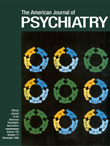Nicotine Dependence in Schizophrenia: Clinical Phenomena and Laboratory Findings
Abstract
Objective:The goal of this report is to examine the potential implications of the high prevalence of smoking in schizophrenia for our understanding of this illness.Method:A selective review of the relevant clinical and preclinical literature was conducted. The authors present a review of the clinical observations about smoking in schizophrenia, summarize the preclinical data about the complexity of the CNS nicotinic receptor family, and examine the modulatory effects of nicotine on neurotransmitter systems implicated in schizophrenia.Results:Clinical data suggest that smoking in schizophrenia may represent an attempt to self-medicate symptoms of the illness. Preclinical findings support a potential role of nicotine in medicating negative symptoms in particular. Recent preclinical and clinical data suggest that schizophrenic patients have a primary defect in the CNS nicotinergic system that leads to abnormal sensory gating. The complexity of the neuromodulatory effects of CNS nicotinic systems on other neurotransmitter systems underscores both the scope and potential importance of continued advancement of research in this area.Conclusions:Despite increasing clinical research focused on the extremely high prevalence of smoking in schizophrenia, linkages to the prodigious preclinical data about nicotine and nicotinic receptors are largely unexplored. These linkages are likely to be very important. Integrating nicotine use into our clinical and basic models of schizophrenia leads to a more complex but more realistic representation of brain dysfunction in this illness. Understanding how and why schizophrenic individuals use nicotine may lead to the development of new treatments for both schizophrenia and nicotine dependence. Am J Psychiatry 1998; 155: 1490-1501



